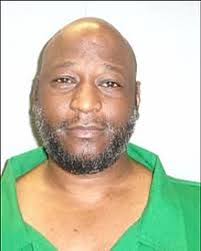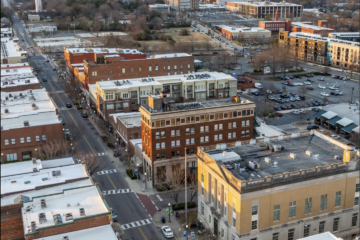Following legal deliberations addressing expired lethal injection drugs and the legalization of a firing squad and electric chair, the state is prepared to administer capital punishment every five weeks if necessary.
October 17, 2024
After an unintended thirteen-year suspension of capital punishment, South Carolina has begun to file through its inmates on death row, beginning with the lethal injection of Freddy Owens on Sept. 20. Five more men are to follow, including Richard Moore’s execution on Nov. 1. According to the Death Penalty Information Center, or DPIC, there are currently 35 individuals on South Carolina’s death row, many of which have run out of appeals.
Though lethal injection is the most common methodology used in capital punishment for South Carolina and the nation writ large, starting in 2021, South Carolina inmates were authorized to choose between a firing squad, lethal injection, or the electric chair according to the Associated Press. The state declared all three methods constitutional in a 2024 Supreme Court case. The legalization of these forms of execution is rooted in long-standing issues the state has had with procuring lethal injection drugs.
The absence of state sanctioned executions since 2011 is not the result of a dramatic drop in violent crime or the moral revelation of state officials, but instead of a pharmaceutical hold-up. The lethal drug typically used in capital punishment executions expired soon after 2011, and subsequent requests for the drug have been denied. In 2021, NPR reported that “the agency still couldn’t obtain the drugs because manufacturers and compounding pharmacies contacted by the state refused to help.”
While government officials were in limbo passing laws and filing cases to obtain a new drug, inmates on death row were forced to choose between the electric chair and firing squad, both of which have been called barbaric and outdated. According to the New York Times, this dilemma led to the ultimate postponement on capital punishment, as courts decided lethal injections must be an available option.
Pausing capital punishment due to logistical complications is not uncommon in the United States, as multiple states have faced concerns over botched procedures, expired drugs and old machinery. In South Carolina, this pause has resulted in a backlog of inmates on death row and the steady flow of executions soon to come.
Today, as noted by the Associated Press, all three methods of punishment are deemed “tested and ready” by the state. With this came the acquisition of a new lethal injection drug, Pentobarbital, in 2023 which will narrow down the process from three drugs to one, with expected effectiveness.
Before South Carolina officials could certify lethal injection as an available option, a state Supreme Court case in 2021 legalized the use of both the firing squad and electric chair. This ruling likely serves to safeguard capital punishment proceedings if the state were to run into issues with lethal injection again, as the New York Times noted. This enjoined South Carolina with only four other states in the country to utilize a firing squad and six other states to utilize the electric chair.
Despite calls that both methods constitute “cruel and unusual punishment,” the courts ruled in their favor, claiming that since inmates are allowed to quite literally “pick their poison,” the methodology is legal. The majority-conservative bench additionally denies responsibility for unfair punishment if lethal injections are no longer available or an execution is botched. Given these complications, lawyers of death row inmates and advocates against capital punishment have highly criticized the ruling.
Additional rulings by the South Carolina Supreme Court have noted that if a death row inmate decides not to choose their execution method, the electric chair will be used by default. They also authorized for executions to be held every five weeks, ignoring calls by lawyers to wait at least three months between executions so that cases could receive proper attention and relieve stress on prison staff, according to the Associated Press.
The state of South Carolina has conducted 44 executions since 1976, making it 10th in the nation for capital punishment. In addition to this, no South Carolina governor has ever granted clemency to inmates on death row. This instrument of punishment is indicative of the state’s criminal justice system as a whole, as Dr. Anthony Hobert, Professor of political science, highlighted.
“Both the United States of America and South Carolina execute people whom our judicial system decides are guilty and deserving of death. This puts us in unenviable company, as most of the other nations that retain this punishment are those with the most egregious records of human rights violations (e.g., Iran, China, North Korea, Syria). As citizens of both South Carolina and the U.S., we need to consider the arguments put forth by those nations that have abolished the punishment, and we should accept the practice only if we deem those abolitionist arguments wanting.”
Freddy Owens and Richard Moore, the two inmates whose execution marks a reinstatement of South Carolina’s death penalty, have been central cases in the current controversies surrounding capital punishment in the state. Although they were both charged with serious violent crimes, the inmates’ cases are riddled with complications that many feel do not merit such a final consequence.
Freddie Owens, executed on Sept. 20 in Columbia, South Carolina via a lethal injection, was first charged with manslaughter in 1997 after reportedly murdering a convenience store clerk while demanding that she open the store safe. He was 19 years old. Following this incident, Owens killed a fellow inmate in the county jail while awaiting his trial.
Due to his religious beliefs, Owens was allowed to have his lawyer decide how he would be executed, so as to remove himself from any personal choice, which he associates with suicide. South Carolina Governor Henry McMaster denied Owens clemency immediately prior to his execution.
The details of Owen’s case are far from clear-cut. The Associated Press reported that no scientific evidence was given for his initial murder. Security footage inside the store has been deemed inadequate, and the weapon Owens wielded was never found. The primary evidence used to convict Owens was the guilty plea of his co-defendant, Steven Golden, which could potentially be tied to his own self-interest.
His lawyers additionally argue that the brain damage Owens suffered in his traumatic childhood and the violence he experienced while in juvenile prison should be taken into consideration. Although previous cases have examined these limitations, the Associated Press noted that “Owens had two different death sentences overturned on appeal only to end up back on death row.”
Richard Moore’s execution date, set for Nov. 1, will mark the state’s second use of capital punishment since 2011. Moore was also charged with murdering a convenience store clerk whom he attempted to rob in 1999. Moore has spent over 20 years on death row according to NPR and “plans to ask Gov. McMaster [. . .] for mercy and to reduce his sentence to life without parole,” this month.
While murder charges are typical of capital punishment cases, Moore’s story differs from most in that he was not armed when entering the convenience store and instead utilized one of the clerk’s two guns to fight back after being shot in the arm. This action was not premeditated, so Moore has claimed self-defense in his appeal cases, which the state has since denied. The Associated Press notes that “If he [Moore] is executed, he would also be the first person put to death in the state in modern times who was unarmed initially and then defended themselves when threatened with a weapon.”
Moore feels there is bias in the prosecution of his case, as he was convicted by an all-white jury as a Black man. He has since appealed to the Supreme Court regarding this issue. Moore’s lawyers additionally claim Gov. McMaster has had too much interference with Moore’s case as the state’s former Attorney General to be impartial in deciding clemency.
A final curiosity in the executions of Owens, Moore, and the four men that are likely to follow, revolves around race. Four out of six of these men are Black, or approximately 66%, whereas the population of the state is around 30% Black. This trend is eerily present as far back as the DPIC’s data for South Carolina goes, with 237 of the 302 persons executed in the 20th century being Black, or 78%. From 1985 until the present day, about 40% of those executed have been Black men.
Ethical concerns regarding race, methods of punishment, and limited appeals for death row inmates have been raised by those against the death penalty in recent weeks and will likely continue throughout the rest of 2024, given that South Carolina proceeds with its ramping up of postponed executions.




